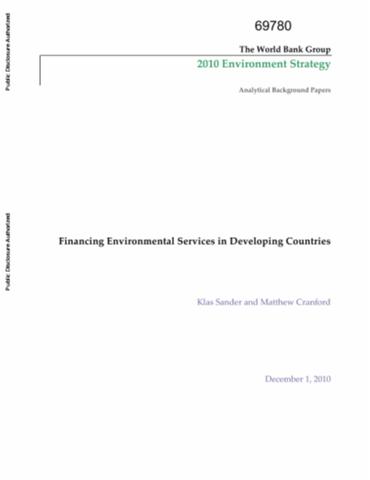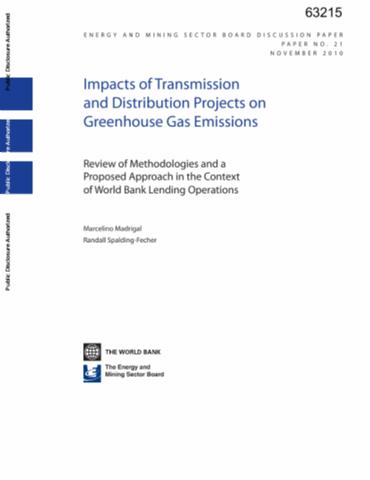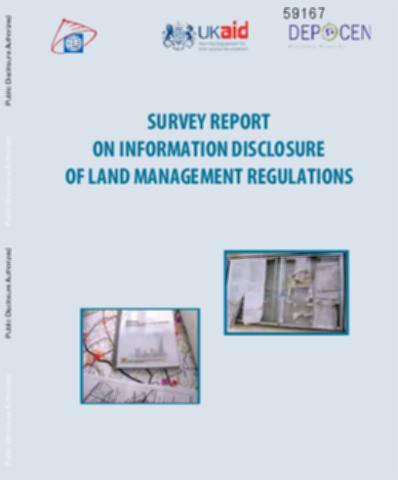The World Bank is a vital source of financial and technical assistance to developing countries around the world. We are not a bank in the ordinary sense but a unique partnership to reduce poverty and support development. The World Bank Group has two ambitious goals: End extreme poverty within a generation and boost shared prosperity.
- To end extreme poverty, the Bank's goal is to decrease the percentage of people living on less than $1.25 a day to no more than 3% by 2030.
- To promote shared prosperity, the goal is to promote income growth of the bottom 40% of the population in each country.
The World Bank Group comprises five institutions managed by their member countries.
The World Bank Group and Land: Working to protect the rights of existing land users and to help secure benefits for smallholder farmers
The World Bank (IBRD and IDA) interacts primarily with governments to increase agricultural productivity, strengthen land tenure policies and improve land governance. More than 90% of the World Bank’s agriculture portfolio focuses on the productivity and access to markets by small holder farmers. Ten percent of our projects focus on the governance of land tenure.
Similarly, investments by the International Finance Corporation (IFC), the World Bank Group’s private sector arm, including those in larger scale enterprises, overwhelmingly support smallholder farmers through improved access to finance, inputs and markets, and as direct suppliers. IFC invests in environmentally and socially sustainable private enterprises in all parts of the value chain (inputs such as irrigation and fertilizers, primary production, processing, transport and storage, traders, and risk management facilities including weather/crop insurance, warehouse financing, etc
For more information, visit the World Bank Group and land and food security (https://www.worldbank.org/en/topic/agriculture/brief/land-and-food-security1
Resources
Displaying 4646 - 4650 of 4907Financing Environmental Services in Developing Countries
Current international financing (primarily ODA) for environmental services in developing countries is very roughly estimated to be upwards of $21 billion annually (not including climate change financing), but additional resources on the order of tens, if not hundreds, of billions of dollars are needed. In 2009, environmental ODA was estimated at $18 billion with a few billion more delivered through philanthropic and market-based financing channels.
Irrigation Restoration and Development Project Resettlement Policy Framework
From the document's preface: "This draft Resettlement Policy Framework (RPF) sets out the general principles and policies to be followed in connection with any land acquisition and resultant resettlement which will occur during the implementation of the proposed Irrigation Restoration and Development Project scheduled to commence in 2011.
Pilot Land Tenure Registration in Rwanda: Evidence of Initial Impacts
A survey of some 3,500 households in and adjacent to land tenure regularization (LTR) pilot cells was undertaken some 2.5 years after completion of the LTR pilot. The results of the survey provide evidence on the fairness and gender inclusiveness of the regularization process, households’ knowledge of the law, and initial investment impacts. A large majority of those asked perceived the process as very fair and transparent. It was, however, more thorough and inclusive in rural than in urban areas, where more than 11 percent of certificates could not be issued because of a pending conflict.
Impacts of Transmission and Distribution Projects on Greenhouse Gas Emissions
The Strategic Framework for Development and Climate Change (SFDCC) approved in 2008 guides and supports the operational response of the World Bank Group (WBG) to new development challenges posed by climate change. One activity pursued by the SFDCC is to further develop and test methods to analyze climate risks and greenhouse gas (GHG) emissions at the project level. The SFDCC emphasizes the need to improve GHG accounting activities at the project level to understand the implications of the World Bank's interventions.
Survey Report on Information Disclosure of Land Management Regulations
Land, and its proper management, is a central issue in developing countries. Efficient use and management of land are key contributors to maximizing the potential benefits of sustainable socioeconomic development. Accurate and accessible land information is a necessary requirement for sustainable rural and urban development, which will contribute to the elimination of poverty. A well-functioning land market is crucial for achieving these goals and a prerequisite for a land market to function properly includes easy, rapid and cost-effective access to land information.










